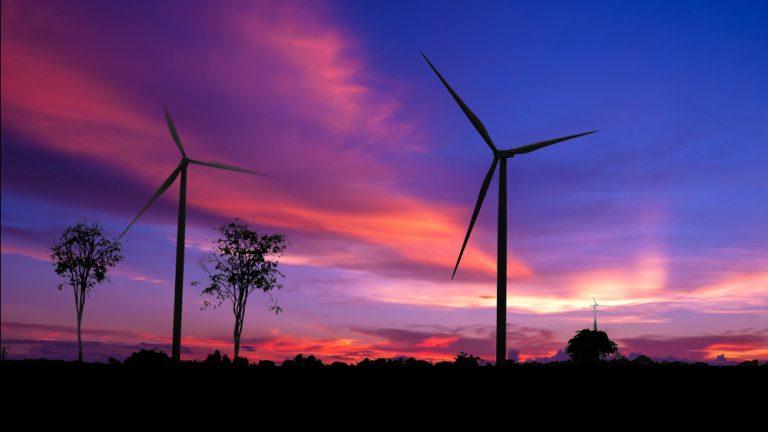
Global efforts to switch to renewable energy have been ramping up in recent years, with nations increasingly banding together to fight climate change.
Accordingly, the International Energy Agency (IEA) has now said that it expects renewable energy used globally to grow 20 percent in the next five years, to 12.4 percent by 2023.
In fact, the IEA said that 2017 marked a record year for renewable energy, spearheaded by growth in the capacity of photovoltaic energy production facilities, with more than half of them in China.
So, which countries are leading the way for renewable energy?
UK
The UK is often considered to be a world leader in wind power, particularly following the implementation of the Climate Change Act back in 2008.
The Act paved the way for a series of electricity market reforms, and greater investment in renewables.
However, recent figures have suggested that investment into renewables continues to stagnate, despite widespread public support (around 85 percent) for its use.
According to a report by the Centre of Alternate Technology, renewables can meet the demands of UK’s electricity requirements.
Nevertheless, Last year only 29 percent of the UK’s electricity was sourced from renewables last year.
Yet some efforts to reduce the UK’s reliance upon fossil fuels have seen some progress.
Notably, coal electricity supplied just 1 percent of the UK’s electricity this summer, with the government aiming to phase out its use entirely by 2025.
Back in January, Prime Minister Theresa May gave a speech detailing a 25-year environment initiative, as it looks to ramp up its climate change efforts.
The speech emphasised the advantages of harnessing new low-emission carbon technologies as a means for creating sustainable growth.
Yet during May’s recent key-note speech at the conservative party conference in Birmingham, May tellingly failed to address the subject of renewables, suggesting green energy is not a priority.
Conversely, shadow leader Jeremy Corbyn pledged the Labour party to commit to spearheading a ‘green jobs revolution’, during his counterpart conference speech in Liverpool.
Mr Corbyn said Labour would endeavour to create some 400,000 jobs under the initiative, with expansive plans to boost solar energy and reduce the UK’s carbon emissions by 60 percent in 2030 and to zero by 2050.
Germany
Germany is often considered to be at the forefront of industrial revolution, leading car manufacturing for decades.
Nevertheless, Germany is also leading the way in pioneering green energy, which it refers to as the energiewende.
According to recent statistics, Germany generated enough renewable energy for the first months of 2018 to power every household for a year.
Germany’s combined wind, solar, biomass and hydroelectric power output hit a record of 104 billion kilowatt hours (kWh) between January and the end of June, according to energy firm E.On.
The figure is an increase of 9.5 percent compared to the same period of 2017, and also marks third more than three years ago, E.On said.
Moreover, as of 2017, Germany represented the biggest global market in cumulated capacity per capita.
Costa Rica
However, Costa Rica continues to lead the way with respect to renewable energy, surpassing the efforts of its European counterparts.
Last year, the Central American nation was powered by renewable energy for 300 days.
Costa Rica currently generates an astounding 99 percent of its electricity from renewable sources.
Specifically, it produced electricity from 78 percent hydropower, 10 percent wind, 10 percent geothermal energy and an additional one percent from biomass and solar.
U.S
More disappointingly, the U.S has continued to push back on climate change efforts in recent years, having backed out of the Paris Climate Change agreement.
According to a recent report, US renewable energy sources accounted for almost 20 percent of the country’s net energy generation for the first half of the year.
However, the Trump administration continues to deny climate change, backtracking upon green reforms introduced under his predecessor, Barack Obama.
Back in September, the U.S government announced its intention to reduce restrictions on oil and gas companies regarding releasing methane gases.
